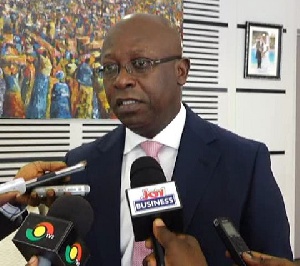Fund transfers from one mobile network to another is recording steady increase since mobile money interoperability was launched on May 10, this year, an indication of increasing awareness and public confidence in the new system.
In the first seven days of mobile money interoperability, a total of 28,000 transfers valued at about GH¢2.3 million were made.
By the next seven days, the total volume had gone up by about 30 percent to 36,181 transfers valued at about GH¢3.3 million, representing an increase of over 44 percent in terms of value.
With the launch of the mobile money interoperability, customers are now able to transfer funds from one mobile money wallet to another wallet across networks.
This eliminates the hitherto complexities and inconveniences associated with transfers across the various networks in the country.
The mobile money interoperability has also been seen as an important vehicle to deepen financial inclusion because it enables people who do not have bank accounts to be roped into the banking system, as any money kept in a mobile money wallet is actually held at a bank.
The Chief Executive Officer of Ghana Interbank Payment and Settlement Systems (GhIPSS), Archie Hesse, said the rollout of the mobile money interoperability had been smooth.
He explained that mobile money was a major deal breaker and making it interoperable opens up the space for people to perform basic financial transactions.
“We see transactions as low as GH¢5.00, GH¢10.00, and some also transfer huge values, so MoMo works for both very low and high income earners,” he said.
Mr. Hesse said with cross network money transfer now a reality, Fintechs and financial institutions should design financial products that can meet the needs and abilities of low income earners.
The GhIPSS CEO also challenged the Fintechs to come out with solutions that enable merchants to accept mobile money as payment through a shorter and simpler payment procedure.
He is upbeat that the introduction of various products based on MoMo will significantly drive its usage as well as reduce cash-based transactions.
Business News of Thursday, 31 May 2018
Source: ghananewsagency.org
Mobile money interoperability transactions on the rise
Business
















